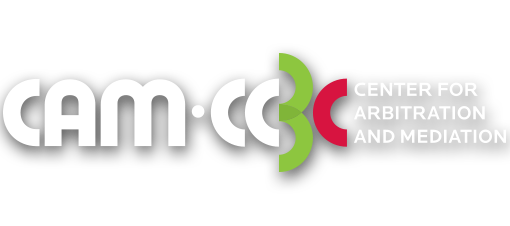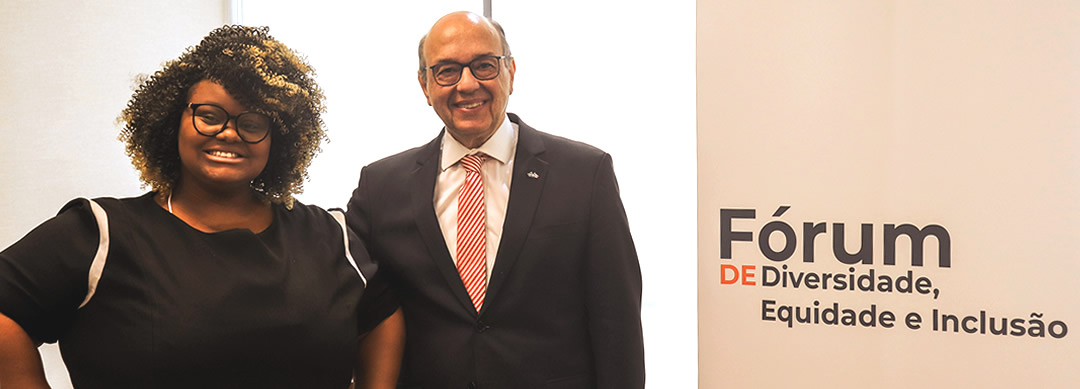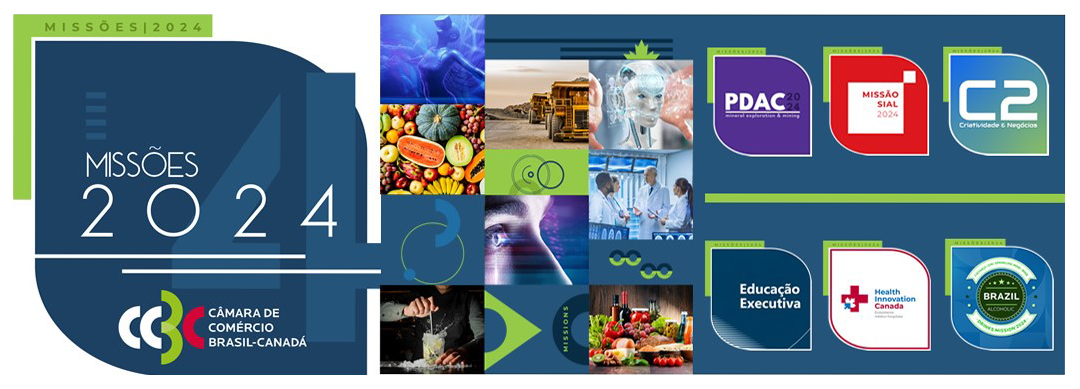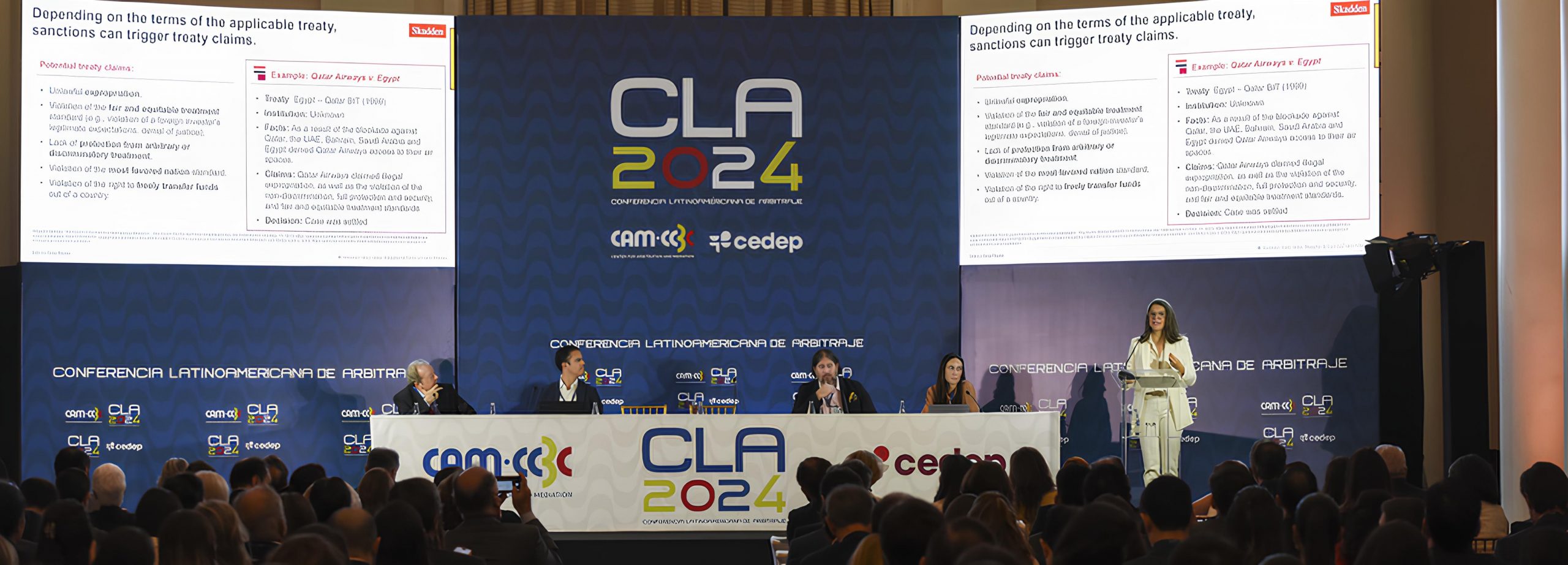The event discussed the importance of ethnic inclusion and its impact on society and the labor market, as well as gender equality
By Deborah Oliveira
The seminar “Ethnic Inclusion and Diversity in Society and its Impact on the Labor Market,” one of the panels of the second edition of the Diversity, Equity, and Inclusion Forum, organized by the Chamber of Commerce Brazil-Canada (CCBC), brought together experts to discuss the importance of recognizing and valuing diversity and inclusion for building a healthy, harmonious, and respectful corporate environment with opportunities for all.
Based on their experiences, the participants enriched the discussion and showed that companies that embrace inclusion are better prepared to deal with challenges in a globalized world and achieve better results.
After the official opening of the Forum, led by CCBC President Ronaldo Ramos, and a presentation by Canada’s Minister of Diversity, Inclusion, and Persons with Disabilities, Kamal Khera, who shared Canada’s initiatives to promote diversity and inclusion among companies, the first panel of the day brought together renowned experts from companies and institutions that recognize the importance of the topic for business development.
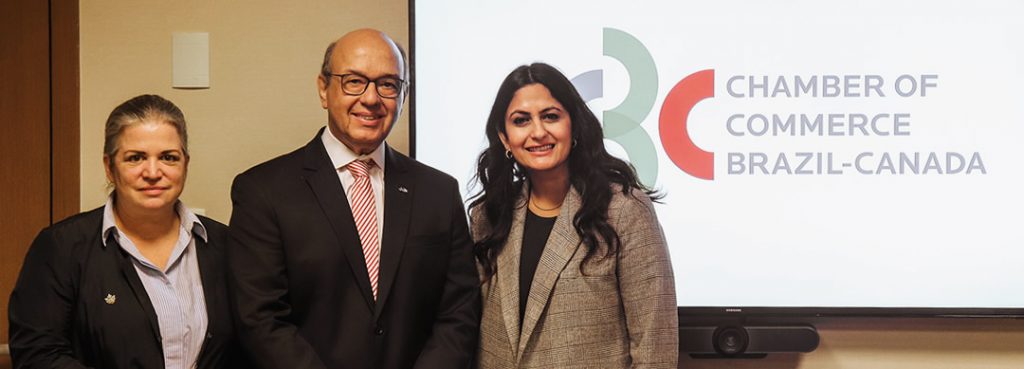
Maria Paz, from the Trench Rossi Watanabe law firm, with over 15 years of experience in national companies and government institutions in the areas of corporate social responsibility, diversity, and inclusion, led the discussion and drew attention to the importance of true inclusion for companies, a process that, in her opinion, should be carried out consciously and with representation.
“When we see leaders gaining value, it becomes much easier to engage those they lead,” she said. Maria stated that 56% of the Brazilian population identifies as black, but only 30% of managerial positions are held by these individuals.
“If we look at managerial positions in large companies, this number drops to 5%. There is a historical root. Inclusion in companies is essential for combating racism and vulnerabilities of minority groups,” Maria added, launching the discussion for the guests to debate.
For Jandaraci Araújo, Advisory Board Member of Women Corporate Directors and founder of Conselheira 101, an affirmative action program aimed at increasing knowledge of corporate governance and focused on the inclusion of black and indigenous women in boards, it is important to improve the selection processes for black individuals and increase leadership representation.
“Structural racism affects individuals, such as black and indigenous women, who are overlooked in selection processes. There are cases of professionals with excellent qualifications in leadership positions who are not considered in many selection processes,” she explained.
She also commented on the creation of the Conselheira 101 program. “It all started from a post on Instagram by a diversity program that, however, did not have black women among the participants.
The program was born from a provocation, and today we have already trained more than 100 black and indigenous women, not only from the Southeast and South but also from the North and Northeast, and the idea is to expand in 2024, to become an institute,” she said. “Innovation and diversity are the great prospects for business, and in Brazil, it is now time to take action,” she added.
Juliana Kaiser, board member of the Brazilian Association of Human Resources (ABRH-RJ), recalled the positive changes she observed at UFRJ – Federal University of Rio de Janeiro, where she pursued her MBA in social responsibility and sustainability.
“I realized there were huge gaps and that I needed to act when professors asked quota students to stay for reinforcement classes because they did not know Portuguese. This is just one example that illustrates some issues in daily life. That’s why my role is to sensitize companies that are afraid to implement affirmative programs, to show them that we support these projects, precisely to reduce this gap in the labor market,” she explained.
For Luis Henrick Pereira, a lawyer at Eleonora Coelho Advogados, coordinator of the Diversity Council of CAM-CCBC New Gen., and a council member of the Young Members Group of the Chartered Institutors of Arbitrators – Brazil Branch, companies face major crises because they do not exercise dialogue and the exchange of ideas.
“It is important to promote conversations within companies since polarizations and diversity are interesting,” he noted. He cited the example of rapper and music producer Jay-Z, who initiated a process to stop an arbitration against a company, claiming it was unfair that the company had not found a black mediator and that the arbitration panel was not diverse. “It is a clear example of market loss; if a company does not have a diverse cast, it will certainly lose business,” he concluded.
The second panel, “Women on the Rise, Advances in UN SDG 5,” moderated by Esther Nunes, coordinator of the CCBC Diversity and Inclusion Commission, addressed progress and challenges in promoting gender equality, achievements, and areas that still need attention.
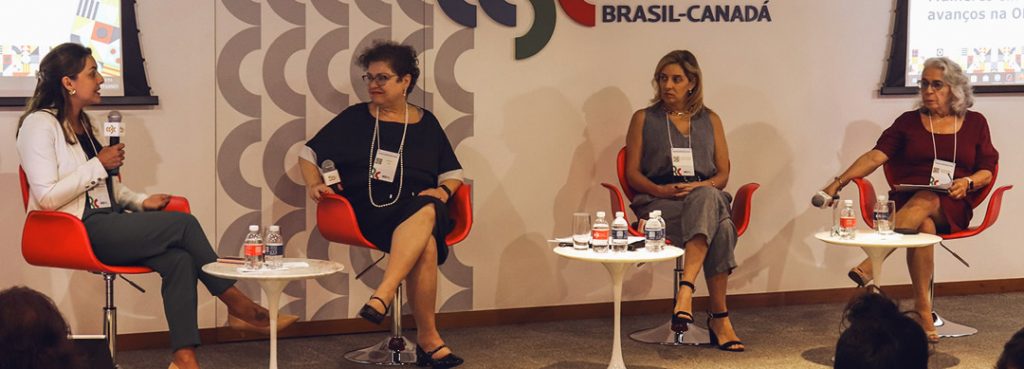
“The United Nations’ goal 5 is to achieve gender equality and empower all women and girls by ending all forms of discrimination, violence, and harmful practices, as well as ensuring equal rights and economic access for women. The goal is to bring reflections on engagement in social causes and to put crucial topics on the agenda that will contribute to the mutual growth of individuals and businesses,” she noted.
For Veronica Prates, co-founder of Women Inside Trade and Institutional Relations Manager at Embraer, spaces are not readily available, and having the skills alone is not enough. “We have made rapid progress; the pent-up demand was significant. It is important to connect women to various business sectors so that they can gain more space. One of the concrete actions is identifying women to dispel the myth that there are no qualified women to speak about foreign trade,” she emphasized. “It is essential to talk about job openings, study bubbles, training, and exchange among participants, allowing women to showcase their potential. That is empowerment,” she summarized.
Alexandra Soraia Segatim, CEO of the Women of Brazil group, pointed out that women’s leadership in decision-making spaces is one of the main objectives of the group, conceived by Luiza Trajano, with 40 women. “Today, we address 20 agendas, such as education, health, refugees, violence against women, and racial issues are essential because if we are in a Brazil where 55% self-identify as black and brown, we need to understand all the social advancements that are necessary, with equity, diversity, and social justice,” she said.
Mariangela Schoenacker, Organizational Development Consultant at LHH, presented data on women’s presence in organizations, showing that the number of women in top management is 32.4%, and in boards, it is 15.2%. She provided a breakdown for the IT sector, where a considerable number of women serve as CFOs: 38%.
The data revealed that women’s presence in the IT sector overall is 23%. “A B3 survey indicates that 61% of listed companies have no women in their boards, and 37% of listed companies have no women in their boards. The challenge is still significant, in terms of awareness and increasing the importance of inclusion,” she said. “Our role is to help companies expand their diversity and inclusion agenda, and for that, we work on three pillars: culture, organizational practices, and people,” she concluded.
Check out some records from the 2nd edition of the Diversity, Equity, and Inclusion Forum below:
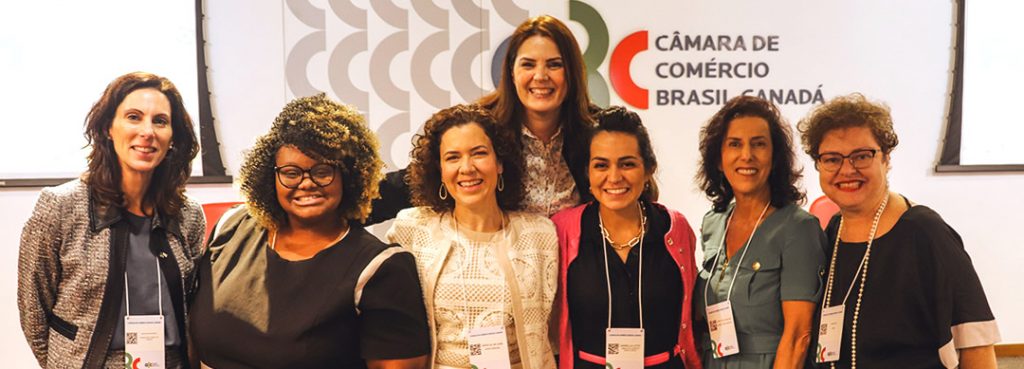
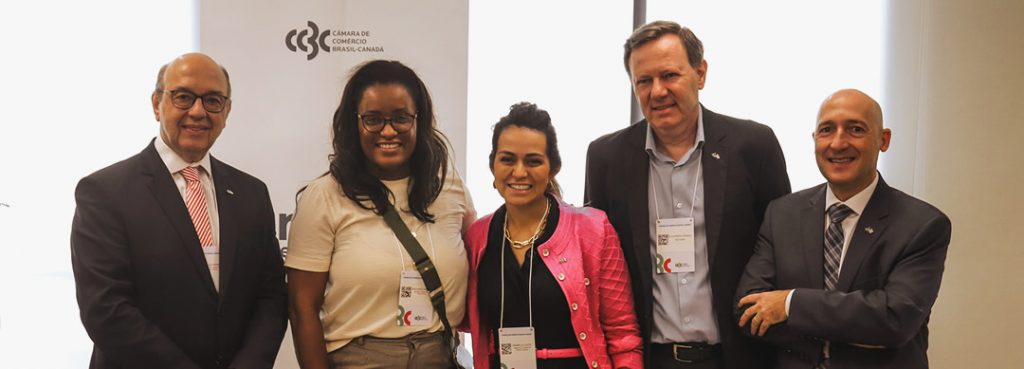
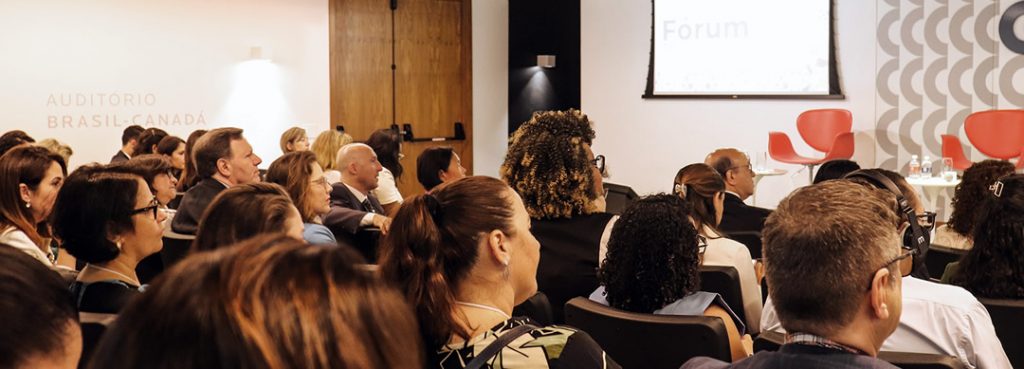
SERVICES:
You can access the complete gallery of photographs on the CCBC website. Click Here!
